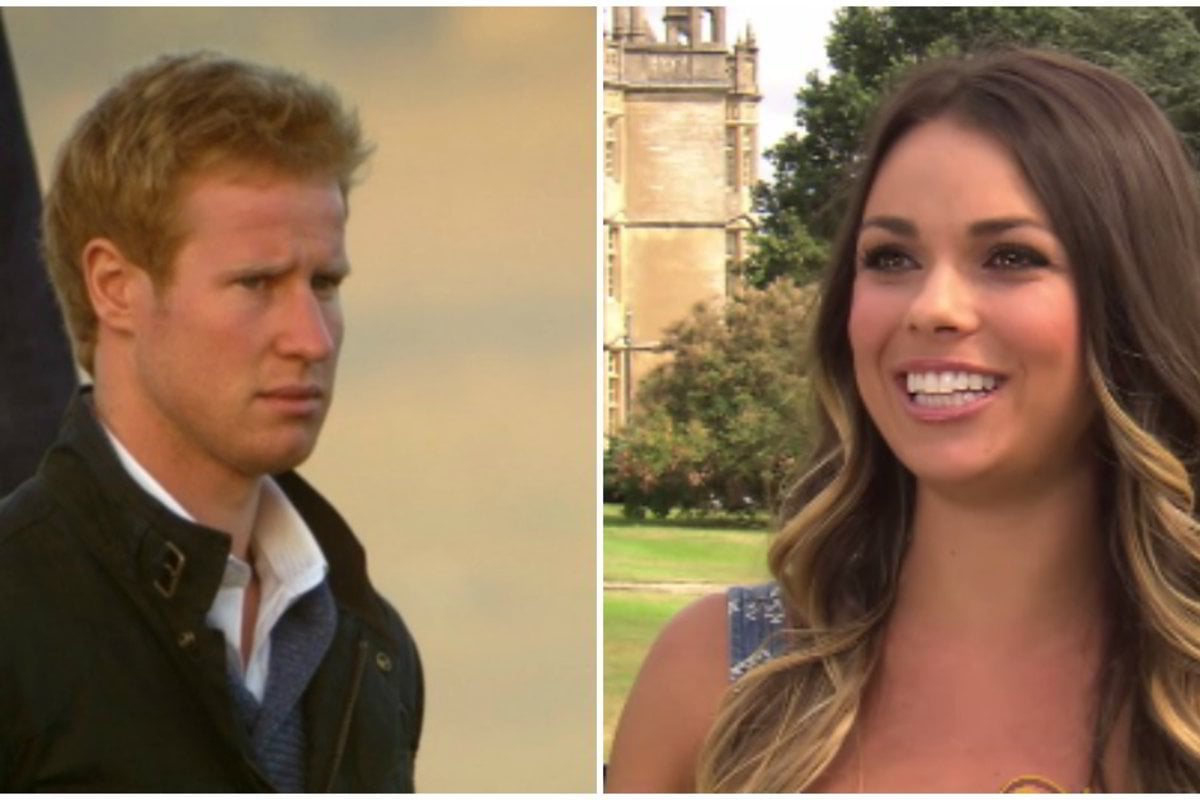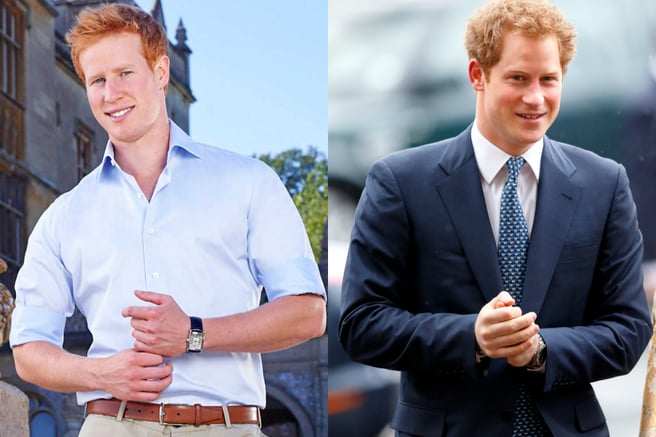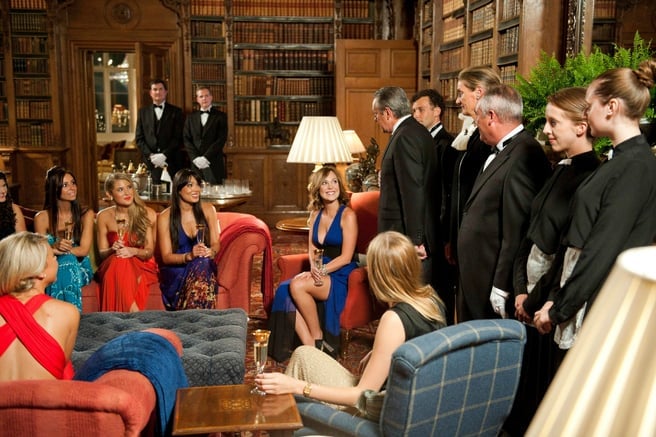
"Just look straight ahead..."
It was 2013. Kimberly Birch and a group of other American women had been shooting a scene for a reality dating show in London. The man they were vying for was a debonair British red-head with a castle, a butler, perfect elocution and a strikingly familiar face.
"Just look straight ahead, and keep going," the chaperone from the production team said, as the women were hurried back to waiting cars.
Naturally, Kimberly glanced over her shoulder.
She spotted what they'd hoped she wouldn't. A nearby souvenir shop selling Royal Family masks; simple photo cutouts fixed to sticks. There were Prince William ones, plus the Queen, and... Prince Harry.
Only, the image of the red-head plastered on that mask looked different to the man that she and the other contestants had been competing over — a man they'd been led to believe was the British royal.
In that moment, Kimberly told Splinter, her suspicions were confirmed. The whole show was a lie.
I Wanna Marry Harry: when gaslighting becomes 'entertainment'.
I Wanna Marry Harry was a 2014 reality show with a sensational premise: 12 US women are duped into believing they are competing for the affections of a then-single Prince Harry. In truth, their 'royal' suitor is a 23-year-old lookalike named Matt Hicks.































































































